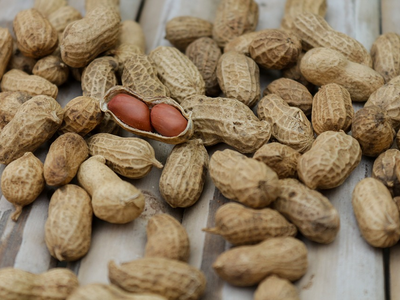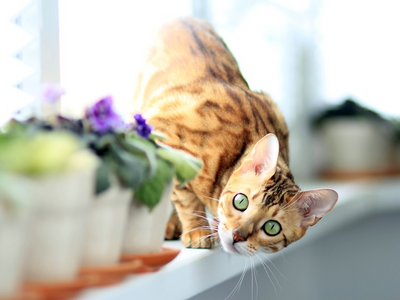05.04.2022
Can cats eat cucumber, and what’s the dill with pickles?
Cucumber is a popular salad veggie filled with moisture, fibre, and vitamins. But does the gourd hold any nutritional value for felines? Can cats eat cucumber, or should you cross it off of their menu? Let’s look at the dos and don’ts of feline nutrition and see if the cucurbit is a welcomed addition or a no-no food.
Can cats eat cucumbers?
When given in moderation, cucumbers can be a healthy snack for cats with acute digestive problems. Besides being 95% water, the cucurbit contains approximately two grams of soluble fibre, which is generally good for the gut and can help with hairball digestion.
If your cat is chronically constipated, a little cucumber here and there can help regulate bowel mobility. The veggies can also soothe some symptoms of irritable bowel disease (e.g. diarrhoea, vomiting, bloating, flatulence, and acute abdominal pain).
In addition to water and fibre, cucumbers are rich in:
- Vitamin K—a micronutrient that enables blood clotting
- Potassium—an electrolyte that sustains muscles and nerves
Note that cats with chronic kidney disease and urinary tract problems should avoid foods that are high in potassium. If you have a sickly senior cat or a breed that’s prone to renal disease (e.g. Maine Coons, Ragdolls, Burmese and Siamese cats), consult your vet before giving your feline companion cucumbers.
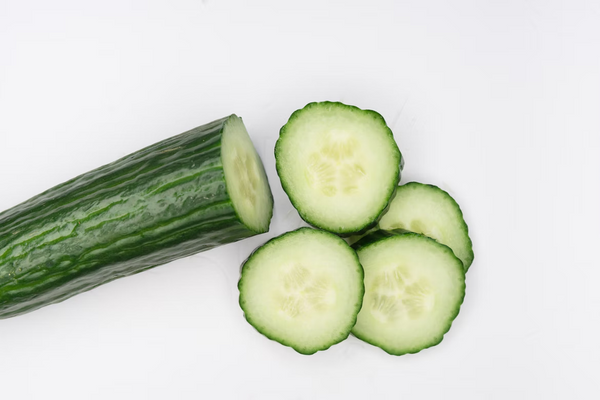
Can cats eat cucumbers? Yes, but only as a treat!
Source: Markus Winkler
More high-fibre fruits and veggies to soothe the stomach
Besides cucumber, cats who suffer from indigestion can also try:
|
Fruit or vegetable |
Fibre content per 100 grams |
Preparation and serving |
|
Broccoli |
2.4 g |
Gently steamed, unseasoned, and cut into small pieces |
|
2.8 g |
Peeled, cooked, and cut into bite-sized pieces |
|
|
5 g |
Removed from the pod, fresh or boiled |
|
|
2.7 g |
Gently cooked and mashed into puree |
|
|
2 g |
Cut into small pieces, no stems or leaves |
|
|
2.4 g |
Cut into smaller pieces |
|
|
2.4 g |
Sliced, without the stem, leaves, and seeds |
|
|
2.6 g |
Cut into small pieces, fresh or frozen |
What’s the best way for cats to eat cucumber?
Cucumbers should only be served fresh and cut into tiny, bite-sized pieces. You should peel the skin since it may contain pesticides (if your cat ever went near a slug bait, you know why that’s a problem). Washing the cucumber will only remove the substance from the outer layer of the skin, meaning traces of it could still be present.
Keep in mind that peeling the cucumber decreases its nutritional value since most micronutrients are concentrated in the skin. Luckily, your cat will still get plenty of moisture and fibre from the flesh.
Don’t go overboard with the gourd. While fibre can promote healthy digestion, too much of it in your cat’s diet can have the opposite effect. If you don’t want to give your pet diarrhoea, adhere to the recommended allowance, i.e. below 3% of the daily meal plan.
Cats shouldn’t eat pickles or gherkins since they’re too salty. The excess sodium can cause hypertension in felines, especially if they’re susceptible to the condition. For example, cats with thyroid issues typically have high blood pressure and require a low-sodium diet.
Fermented veggies also contain various herbs and spices that felines can’t digest. The only “seasoning” felines should have is a dash of catnip or a pinch of grass!

Oh boy, am I in a pickle…
Source: Cyntia Marisa
Do cats really need veggies and fruit in their diet?
While cucumbers and other salad veggies are mostly safe for cats, they have limited to no biological value. Felines are obligate carnivores and can’t get essential nutrients, such as protein, from plants. They need a meat-based diet to remain healthy and active.
Fruits and veggies also contain carbohydrates, which can cause indigestion in felines. Your cat lacks the enzymes to process carbs, so you shouldn’t stuff them with potatoes, corn, brown rice, and other grains.
Fruits and veggies should be relegated to complementary food. You can use them to add variety to your pet’s diet or as a natural probiotic, but don’t make them the main course.
Caution—some fruits and veggies are extremely toxic to cats!
Not all veggies are as cool as cucumbers—some contain toxic substances that can seriously damage your cat's internal organs. If your feline companion has VIP access to the pantry, make sure the following items are out of reach:
- Grapes—Grapes contain substances that can cause acute kidney disease in cats, although the exact source of the toxicosis is unknown. Nutritional experts suspect the fungal toxins in the fruit are the main culprit since they’re harmful to most domestic animals. Another possible cause is the tartaric acid present in both fresh and dried grapes. One small bite can cause a severe reaction in felines, from vomiting and diarrhoea to lethargy and appetite loss. In case of severe poisoning, cats can suffer kidney failure within days
- Citrus fruits—Cats are extremely sensitive to the essential oil extracts in citruses, such as limonene and linalool. The tropical fruit can cause mild to severe food poisoning, depending on how much of it was ingested. Besides gastrointestinal issues, such as vomiting and diarrhoea, your cat can also start drooling, trembling, and feeling weak. Allergy-prone felines can develop dermatitis by touching an orange peel
- Allium vegetables—Allium plants are super toxic to cats. The seasoning you’d use for your one-pot rustic chicken soup, like garlic and onions, can damage your cat’s red blood cells. The oxidants in allium veggies can cause anaemia and even impair their kidney function
What constitutes the purrfect feline diet?
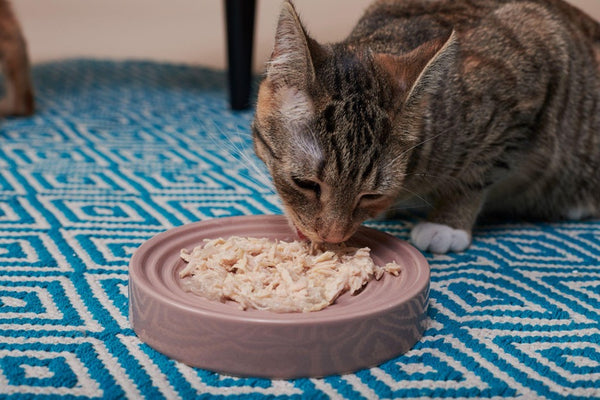
If you ask me, nothing beats a nice bowl of wet food!
Image (c) Untamed
In the wild, your cat would hunt for rodents, game, birds, and even insects, but in the comfort of your home, a daily tin of cat food is the ultimate catch. Semi-moist and wet products are closest to the feline natural diet because they’re:
- High in moisture—Wet food is extremely hydrating, with a 70% moisture content. Water is vital for your cat’s blood circulation and digestion as well as their reproductive and urinary health
- Rich in protein—Wet food is typically packed with animal protein, which is necessary for all vital organ functions. Without it, your cat would suffer metabolic disorders, chronic illness, and fatigue. Animal protein is the only viable source of taurine, an amino acid that sustains the feline’s vision, cardiovascular health, and central nervous system
- Versatile—Wet food comes in various textures and flavours, which is perfect for the fickle feline. Cats can sometimes get bored with their diet and start picking apart their meals. If your cat is being fussy, you can switch between flavours to add variety. For example, give them shredded turkey one night and fish fillet the next
What about dry food? Kibble is made with a mixture of meat, veggies, and starch, which translates to more calories and fewer nutrients. Cats who are on a dry-food-only diet are more likely to start piling on pounds and become obese. While biscuits are considered good for feline oral hygiene, you should only serve them in combination with wet food
Untamed—the best food your cat will taste
Untamed is an advocate of a meat-exclusive diet that’ll provide your cat with sustenance and energy. All our meals are gently steamed to lock in the original bioavailability of the ingredients and ensure each product is:
- High in protein—The protein content in a single serving of Untamed food is twice the industry standard. We don’t use plant protein, meat derivatives, or other useless or harmful substances
- Made with whole meat—All our ingredients are of human-grade quality. We have a wide range of chicken and fish recipes made with whole meat
- Vet-formulated—Veterinarians designed our meals to meet your cat’s unique biological needs. Each serving is highly nutritional and free of all known allergens
- Ethically produced—Untamed is 100% Carbon Neutral Certified. All our ingredients are ethically sourced, and we only use recyclable materials for our packaging
- Impossible to resist—Is your cat a fussy eater? A tin of Untamed’s all-natural, premium wet food can change that! Our food is fresh and appetising to cats of all ages and breeds

Smells like heaven and tastes even better!
Image (c) Untamed
Witness the Untamed effect first-hand!
We offer more than freshness and sustainability—the quality of our ingredients can significantly contribute to your pet’s overall health. After mere weeks into our healthy cat food susbcription, long-term customers have noticed the following improvements in their pets:
|
Timeline |
Health benefits |
|
Within a week |
|
|
After two months |
|
|
Within four months |
|
|
Life-long benefits |
|
You can cherry-pick your pet’s meal plan according to their life stage, food sensitivities, and preferences. Complete a brief online questionnaire and create a custom menu your cat won’t be able to resist! You’ll be able to choose from a wide range of delicious jelly and gravy recipes made with premium, natural ingredients, including:
- Chicken breast
- Duck breast
- Salmon fillet
- Tuna steak
- Sardine and mackerel fillet
- Prawns
- Shrimp
- Chicken liver
- Lean ham
For allergy-prone felines, we recommend our two single-source-protein recipes—Chocka Chicken in Jelly and Tuck-in Tuna in Jelly!

Premium chicken breast dipped in paw-licking jelly—perfect for the sensitive feline!
Image (c) Untamed
How to become a member
If you’re keen to join our wild bunch, start with placing a quick cat food order online! Here’s how to sign up for a trial pack and create the perfect meal box for your feline companion:
- Visit our TRY NOW page
- Give us the deets about your cat
- Go over the suggested meal plan
- Place your order if everything checks out
You won’t have to wait long for your first order to arrive. We will deliver your trial box of fresh Untamed food within a day! If your cat approves the selection, you'll start receiving monthly supplies of Untamed products.
Check out our other guides to what cats can or cannot eat:
|
|

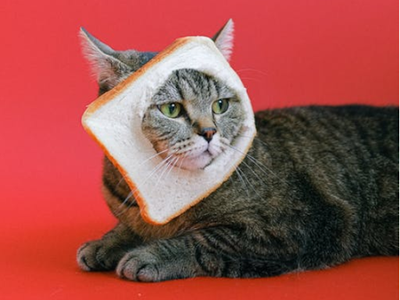
![Associated image for Best food for Ragdoll cats in the UK [Broken Down]](http://untamed.com/cdn/shop/articles/featured_best_food_for_ragdoll_cats_uk_400x300_crop_center.jpg?v=1646818249)
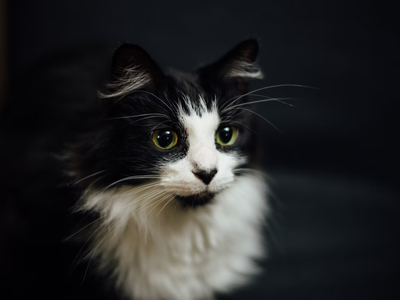
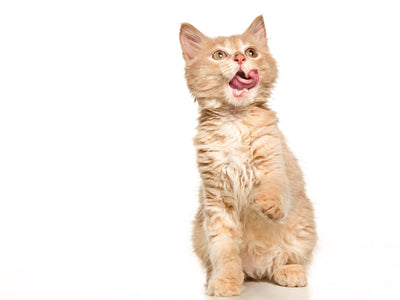
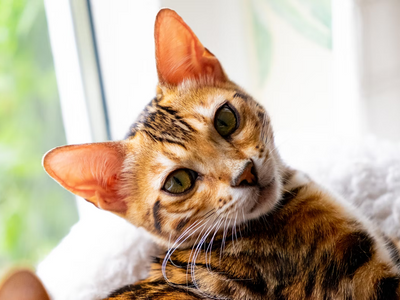
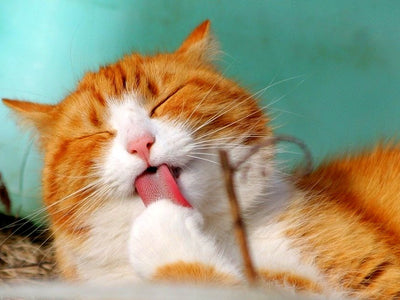
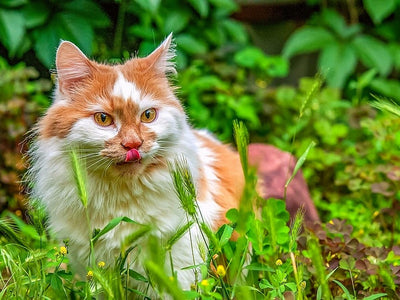
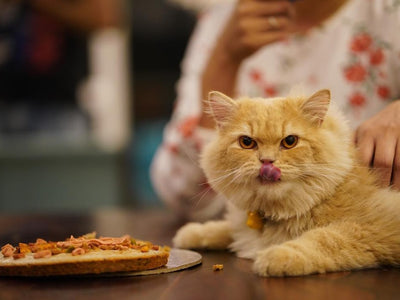
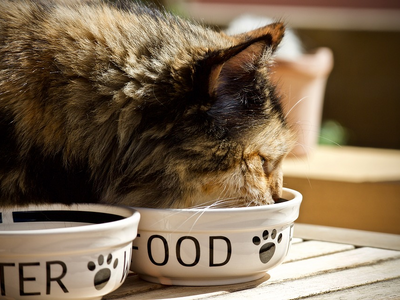
![Associated image for What human food can Sphynx cats eat? [Comprehensive list]](http://untamed.com/cdn/shop/articles/what_human_food_can_sphynx_cats_eat_Featured_400x300_crop_center.jpg?v=1648705074)
